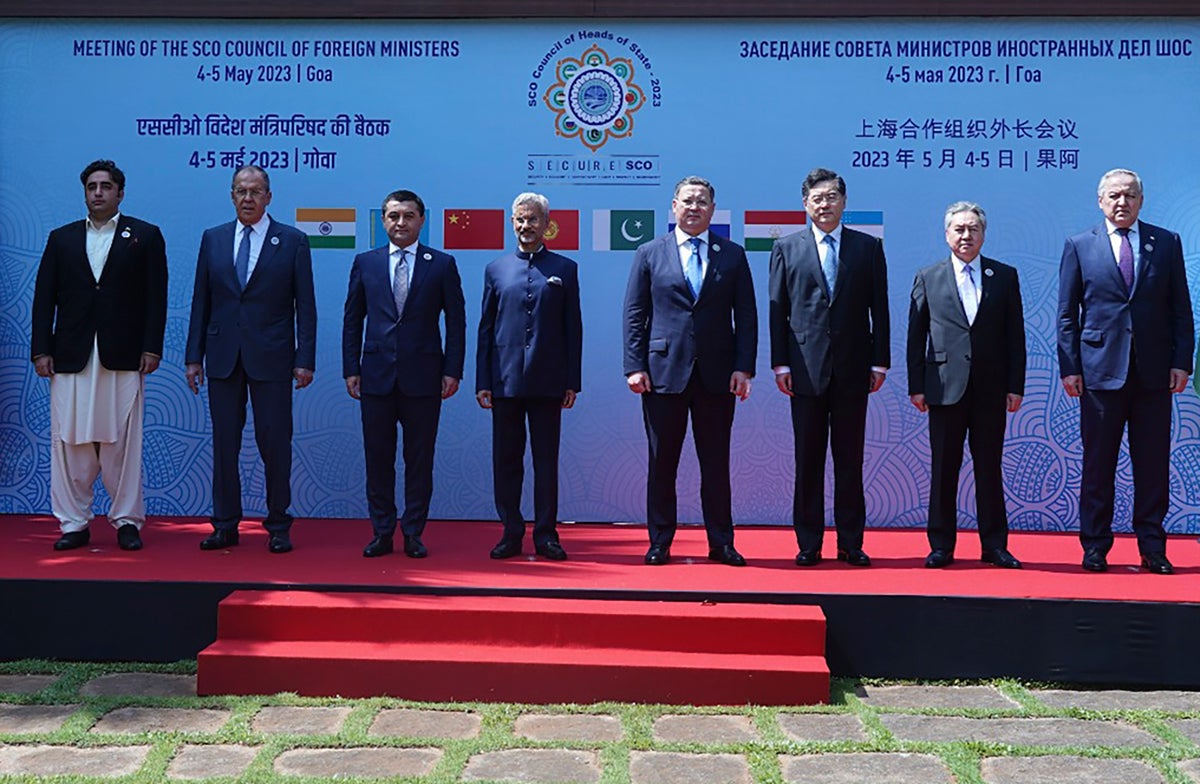
India's foreign minister on Friday criticized global institutions' response to the COVID-19 pandemic and their ability to resolve geopolitical upheaval, saying that alternative forums have an opportunity to tackle such challenges.
Subhrahmanyam Jaishankar said the developments have disrupted global supply chains, especially in energy, food and fertilizer, and hit developing nations the hardest. His remarks opened a meeting of foreign ministers as part of the Shanghai Cooperation Organization, a security pact dominated by Moscow and Beijing that seeks to act as a counterweight to U.S. alliances across East Asia to the Indian Ocean.
“These crises have also exposed a credibility and trust deficit in the ability of global institutions to manage challenges in a timely and efficient manner,” he said. “With more than 40% of the world's population within the SCO, our collective decisions will surely have a global impact."
Jaishankar did not mention Russia's war in Ukraine in his remarks, and analysts say Moscow is unlikely to face backlash over its invasion among the grouping and will instead use the meeting to flex its influence in the region.
Foreign ministers of the SCO are in the Indian coastal resort of Goa, where they are expected to discuss regional security and economic cooperation, among other issues, on Friday. Iran is expected to join the organization later this year.
The SCO was founded in 2001 by China and Russia, and included the Central Asian nations of Kazakhstan, Kyrgyzstan, Tajikistan and Uzbekistan. It was expanded in 2017 to include India and Pakistan.
Jaishankar on Friday also stressed the need to combat terrorism, noting the group is concerned about the security situation in Afghanistan, where the Taliban swept to power after America's chaotic departure last year.
He said cross-border terrorism must be stopped, a veiled dig at archrival Pakistan, which sent its foreign minister to Goa in the first visit to India by a high-ranking official in nearly a decade.
India accuses Pakistan of arming and training insurgent groups fighting for the independence of Indian-controlled Kashmir or its integration into Pakistan, a charge Islamabad denies.
“Let's not get caught up in weaponizing terrorism for diplomatic point scoring,” Pakistan's foreign minister Bilawal Bhutto Zardari said in his opening remarks.
A flurry of bilateral talks were held Thursday ahead of the meeting, as Jaishankar met with his Chinese counterpart Qin Gang and Russian counterpart Sergey Lavrov.
The meeting between the Indian and Chinese foreign ministers came amid a tense situation along their disputed border, where a three-year standoff has involved thousands of soldiers stationed in the eastern Ladakh region.
Qin said the border situation was “stable overall” and that both sides should abide by existing agreements to “promote the further cooling and easing of the border situation and maintain sustainable peace and tranquility in the border area,” according to a statement from China’s Foreign Ministry.
India did not release a statement after the meeting, but Jaishankar tweeted afterwards to say the focus remained on resolving outstanding issues and ensuring peace along the border.
But a meeting last week between their defense ministers highlighted the differing views held by both sides. While India accused its neighbor of eroding ties by violating bilateral agreements, China said the border conditions were stable.
China is willing to work with India to put their relations “back into the track of healthy and stable development,” the Chinese Foreign Ministry statement read.
Qin also met with Lavrov on Thursday. China is the biggest buyer of Russian oil and gas exports, pumping billions of dollars into Russian President Vladimir Putin’s treasury and helping the Kremlin resist Western sanctions over its invasion of Ukraine.
Beijing is also trying to assert itself as a global diplomatic force, and has said it would like to serve as a mediator in the war.
Qin said China would continue to promote peace talks on Ukraine and maintain communication with Russia to make “tangible contributions to a political settlement of the crisis,” the Chinese Foreign Ministry statement said.
Last month, Chinese leader Xi Jinping said Beijing would send an envoy to Ukraine to discuss a possible political settlement.
China has blamed the U.S. and NATO for provoking Russia and refused to criticize Moscow’s actions. However, it has refrained from issuing a full-throated endorsement of the invasion and is not known to have provided arms or other material assistance to the Russian military effort.







